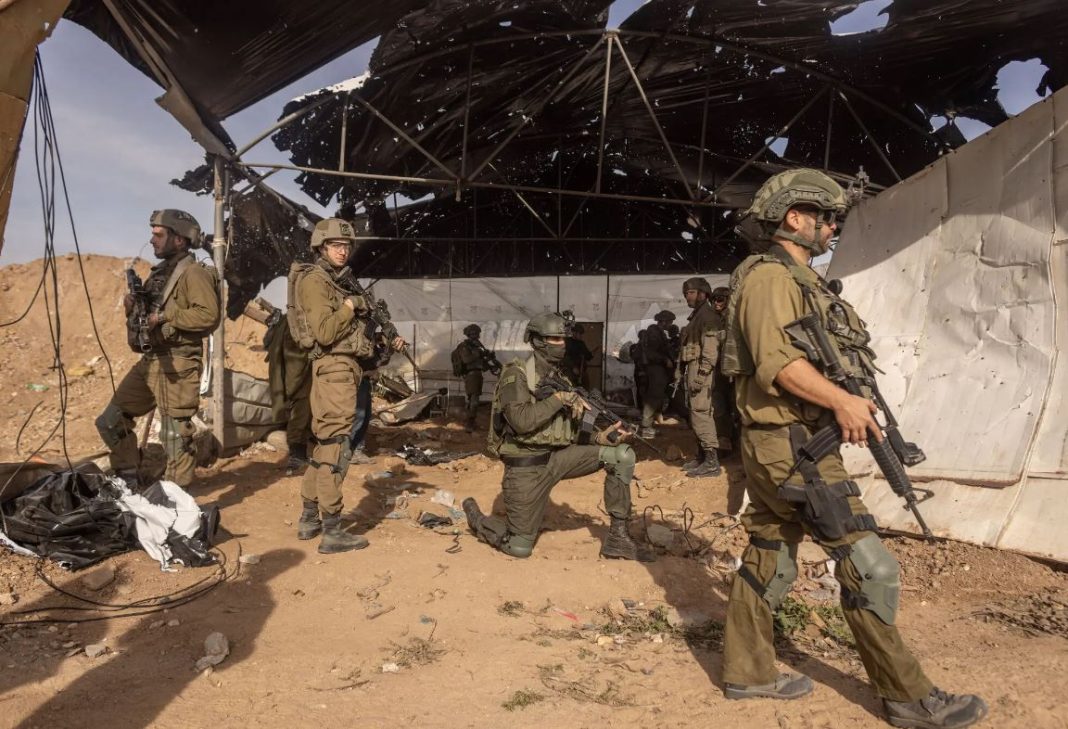President Biden and Prime Minister Benjamin Netanyahu of Israel recently articulated contrasting visions for the future of the conflict in Gaza, underscoring the fundamental tension between their respective positions after more than four months of intense fighting.
Netanyahu spoke of the continuation of warfare, even in the event of a temporary cease-fire aimed at securing the release of hostages, characterizing any pause as merely a delay in the conflict. In contrast, Biden expressed optimism about the potential for a cease-fire agreement to “change the dynamic,” potentially leading to a broader resolution of the long-standing conflict that has defined the Middle East for generations.
This divergence in outlook reflects the different political imperatives faced by the two leaders. Netanyahu has a vested interest in prolonging the conflict to defer accountability for his handling of the Oct. 7 terrorist attack, while Biden is under pressure to end the conflict promptly to appease left-wing elements of his party ahead of the upcoming re-election campaign.
Furthermore, both leaders may believe that they stand to gain a better outcome if the other loses power. Biden’s administration is keenly aware of the possibility that Netanyahu’s government could collapse in response to the ongoing crisis, while Netanyahu may prefer to delay significant decisions until after the U.S. elections, particularly if former President Trump were to return to power.
The negotiations for a potential hostage release have become a focal point of the current discussions, particularly as the Muslim holy month of Ramadan approaches. Biden indicated progress in U.S.-brokered talks and expressed hope for a cease-fire agreement by the weekend’s end, contingent on Netanyahu’s willingness to engage in a deal with Hamas.
The relationship between the two leaders has been strained in recent months. While they displayed unity during Biden’s visit to Israel shortly after the terrorist attack, their subsequent interactions have been marked by tensions, with disagreements over Israel’s military operations in Gaza. Despite occasional friction, Biden has continued to express support for Israel’s right to self-defense, albeit with concern for civilian casualties.
Netanyahu, however, has been more defiant publicly, positioning himself as a bulwark against perceived American pressure for a two-state solution to the Palestinian conflict. He appears determined to maintain his grip on power, despite criticism of his handling of the Oct. 7 attack.
The geopolitical dynamics further complicate the situation, with Biden offering Netanyahu the prospect of normalized diplomatic relations with Saudi Arabia in exchange for ending the conflict and advancing the peace process. While Biden has signaled flexibility on the timing of a two-state solution, Netanyahu’s willingness to embrace such a process remains uncertain.
The internal political landscape in Israel adds another layer of complexity. While there is broad support across the political spectrum for the military campaign against Hamas, divisions emerge regarding the handling of the hostage situation. Netanyahu faces pressure from within his own government and from the public to secure the release of hostages, potentially undermining his political position.
Biden’s administration sees an opportunity to leverage these internal divisions to pressure Netanyahu into accepting a hostage-for-cease-fire deal. The prime minister’s refusal to engage in such an agreement could erode his support within the Israeli political establishment, weakening his position further.
In addition to political considerations, there are strategic implications for both leaders. Netanyahu’s pursuit of total victory over Hamas may prove unrealistic, and he may seek to blame American pressure for any shortcomings in his approach. Conversely, Biden’s efforts to end the conflict and advance the peace process align with broader U.S. strategic interests in the region.
Despite their differing agendas and political pressures, both leaders face the challenge of navigating a path toward resolution amid escalating tensions and entrenched conflict dynamics. The convergence of their political timetables and strategic objectives will ultimately determine the trajectory of the crisis and its implications for the region.

